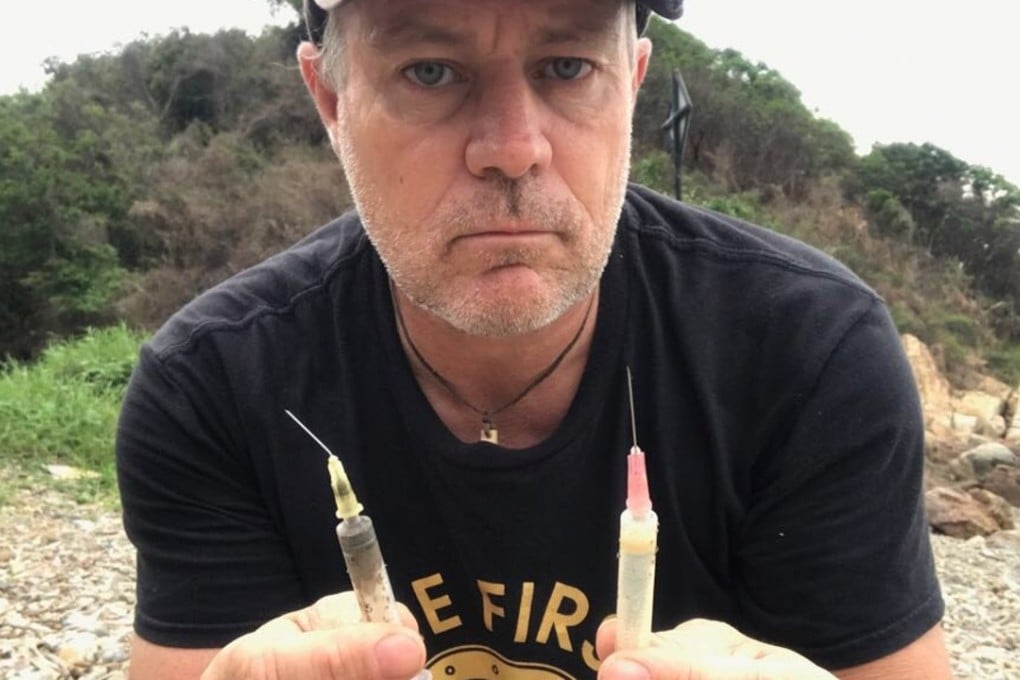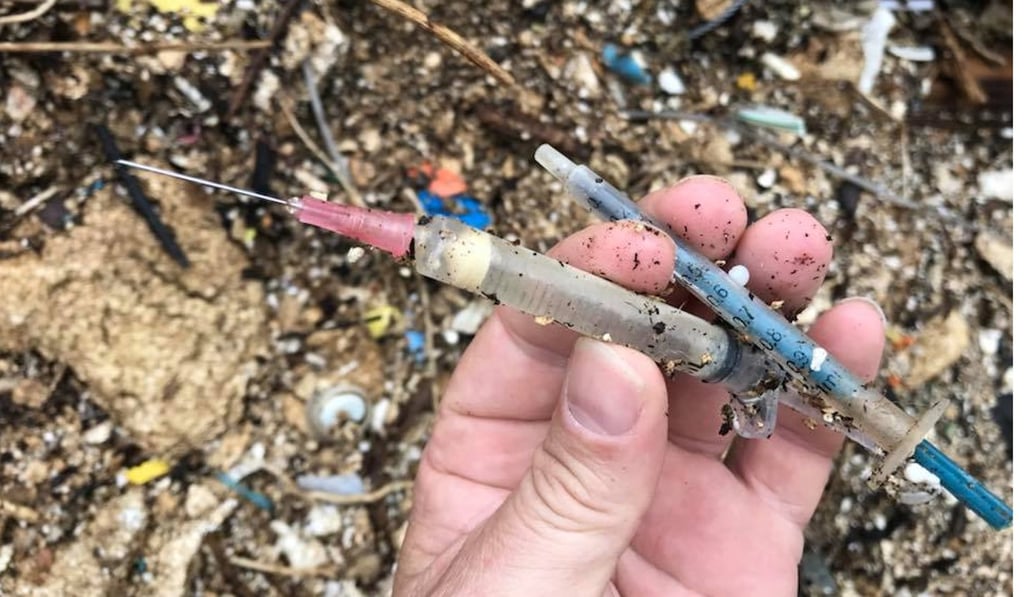Hong Kong environmentalist pricked by syringe on beach clean-up says waste was dumped deliberately
Robert Lockyer is nervously awaiting blood test results after being stabbed by a medical syringe while helping to clear rubbish from a beach on Lamma, one of Hong Kong’s outlying islands

A Hong Kong environmentalist pricked by a syringe while taking part in a beach clean-up says he has had sleepless nights while awaiting blood test results.
Robert Lockyer was taking part in a clean-up on April 15 at Pak Kok Tsui on Lamma Island when he was stabbed in the leg by a needle. While the rocky beach on the island’s northern tip is not popular with tourists or beachgoers, Lockyer says it is popular with fishermen and local children.
400 syringes, 200 drug phials: the medical waste plaguing Lantau beach next to Hong Kong Disneyland
He went to Ruttonjee Hospital, a public hospital in Wan Chai, to be tested for HIV, tetanus and hepatitis, and is nervously awaiting the results, which should come through in about three weeks.

Lockyer believes the needles, which are difficult to spot among the rubbish on the beach, looked like they had been there for a few weeks. Since they were not labelled, he was not able to work out what the syringes were used for, who had used them or when they were used, but he does believe they were deliberately dumped.
I’ve conducted beach clean-ups worldwide, including in Britain, Australia, Africa, the Philippines and the US, but I have never seen as much medical waste as I’ve seen in Hong Kong
“This is deliberate dumping of medical waste by a contractor on Hong Kong Island, either dumping veterinarian or hospital/clinic medical waste. Either way it is deliberate dumping. Not accidental. Not drug users. Not from the PRD [Pearl River Delta] or China,” he wrote in a Facebook post.